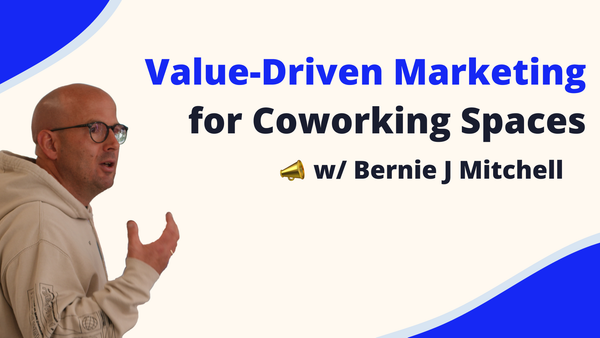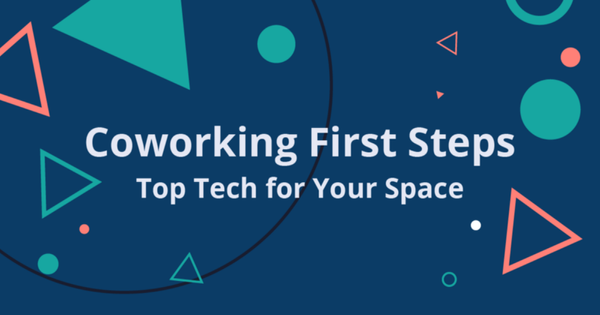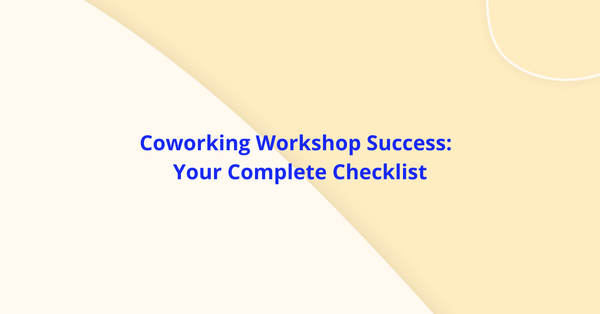Coworking has no boundaries, and it’s everywhere. Some coworking spaces have opened in India over the last months. 4 spaces use Cobot in this Country (The Playce, Working Company, and the two locations of 91springboard). We asked Varun, from 91 springboard, to tell us a bit about their spaces, their plans and coworking in India. Sit back and enjoy!
How would you define coworking and why do you think the coworking movement started? How is coworking different in your country than in other places? How is it growing?
Coworking is a fun and collaborative environment where people from diverse backgrounds can work and interact.
India lacks good quality infrastructure and the process of setting up real estate leases, internet access, power backup, security etc are not trivial, consequently there is substantial value created by just providing a location which takes care of these hassles.
At 91springboard, we did not stop there and have layered on additional pieces such as events which enable networking and knowledge exchange between members and the outside community, and access to investors. We believe we now cater to the higher level needs of our members and maintain an edge over being just a “business center”. We will continue to listen to our members’ needs and evolve :)
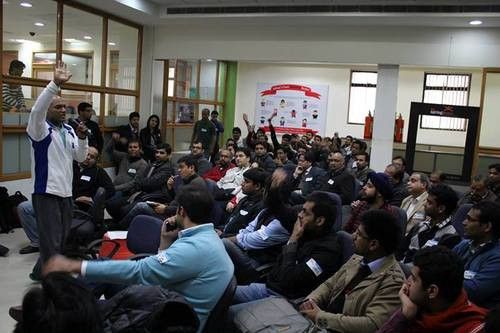
We started 14 months ago in New Delhi and within 11 months had opened our second location in the neighboring city of Gurgaon.
We have close to 120 members (full time + part time) in our first location and are growing rapidly in our second location, 50+ members in just under 4 months. We believe there is a requirement for the product and service we offer and with the right partners we would like to create an India-wide or even global network to grow and proliferate this culture.
How did you start with the idea of opening a coworking space? Which challenges you had and how did you resolve them?
91springboard is founded by 3 partners, we were in high school together and have known each other for nearly 20 years. While this is our first professional activity together we have kept in touch over the years and arrived at this point.
Having been entrepreneurial in our various avatars we had experienced certain shortcomings in the ecosystem and wanted to do our bit to contribute to the community. Access to good quality infrastructure and service providers, a platform to network and learn, and access to investors were the key areas we felt were missing in the startup ecosystem.
The setting up process was unique in that we had initially felt a space for 25 people in a 2000 sq ft space would be ideal, after much searching and realizing that either prices were too high or access to public transport was difficult we finally settled for an old warehouse in a “not-so-sexy” part of town!
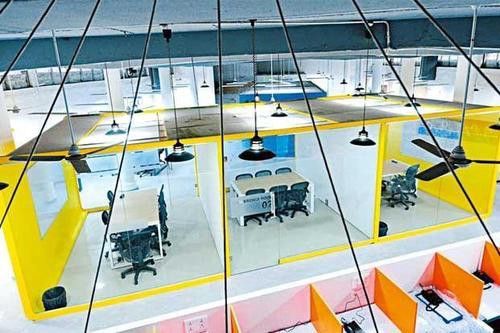
After 3 months of design, construction, and interiors work we were ready to open our doors, the initial goings were slow but then things began to pick up as we received some publicity and our customers to share our activities by word of mouth. Our social media activities and events have helped a lot.
Our biggest challenge remains that India is still an emerging story and while there is a lot of demand, pricing continues to be a challenge. As a result, we had to be especially intelligent in ensuring we built at a low cost and kept our management team costs low.
What kind of people work with you? Do you have freelancers as well as companies?
Our member base is currently very diverse, ranging from social enterprises, not-for-profits, to VC/Angel invested startups and 1-person startups looking to create the next Google or Facebook!
We encourage freelancers to participate as we believe it creates a marketplace for their services vis-a-vis entrepreneurs and small businesses. We have a variety of entrepreneurs whose services range from hr, accounting, public relations, digital marketing, design, ui/ux, legal and technology support. 91springboard has also benefited from a few corporate clients taking interest, as an example a marketing team for a large payments processing company headquartered in a different city.
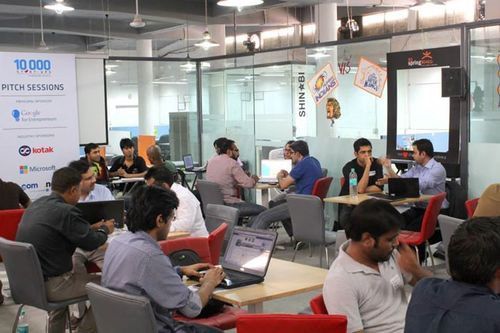
We offer four primary plans and some offshoots, the 4 main plans are Full-time, Part-time (12 working days in a month), Virtual Plan (limited conference room time, mailing address + virtual receptionist services), and Day Plan.
We have private offices in our second location, by accident rather than by design, we feel there is a lot of interest in these offices especially for larger groups, however with time they become accustomed and comfortable with open seating styles.
Another factor is that private offices are priced higher and freelancers/startups have budget/team size constraints.
Why did you initially look for an app to manage your coworking space? How did you find Cobot?
Having been involved with many businesses before, a structured and common approach to managing our spaces was paramount. After a lot of web searching we found cobot. Cobot came across as the most full featured product with a simple yet attractive design, and a quirky mascot :)
We primarily use it for booking of shared resources (conference rooms) and billing. We had experimented with it for attendance but ran into some issues with pfsense stability. We have minor feature requests from time to time and are super satisfied with the team’s responsiveness. We are growing and will have newer needs and will look to the Cobot team for continued support, an example will be some more tweaking to the prorated billing system.
Tell us a bit about your network and how you plan to expand it
We are actively looking to expand. We have grown to 2 spaces in a short 14 months and look to continue that trend. We are always looking for collaborators and partners to grow and welcome any inquiries as such.
On top of coworking, do you host any workshops or community events? Can you share some anecdotes or examples of things that worked well?
We host 4–6 events per month/per campus now. These range from workshops, to panel discussion, to hackathons, to parties (free beer!). We have found that it creates a lively and engaged community that is aware of our activities and calls on us when they need a space to work or organize events.
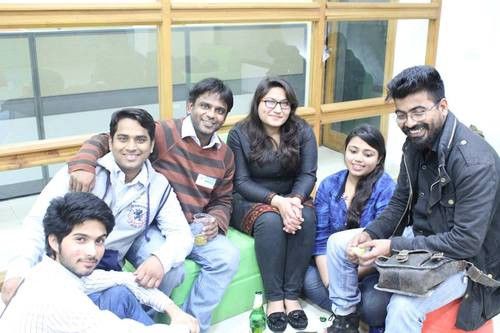
We initially tried to charge for the space to host events, but realized that it didn’t work so well in that many organizers were unable to afford even the basic costs.
We then moved to a model where we would provide the space for free and attract sponsors, while this model has clearly attracted more events the sponsor piece is still a work in progress. We are thankful to have received support from Amazon Web Services and Sequoia, we are hoping others will step up and help us grow the community collaboratively.
Q: How do you see the future of coworking, both in the world and in your country?
Disruptive technologies are changing the way we do business, and large corporations are going to become leaner.
In such an environment its only a matter of time where more and more individuals are going to have to become value creators in either the services or manufacturing sector. To support such a transformation, spaces which integrate coworking, community and capital are going to be an important catalyst. More spaces with the ability to add more value to its members are a core need.
While not insulated from global trends, in India there is a lagging effect and a differentiated culture. India is a strongly entrepreneurial community and now that foreign investments have empowered us, a revolution of domestic creation and consumption is just around the corner. Coworking spaces and incubators are going to facilitate the growth of such entrepreneurs.
We hope you enjoyed the interview. If you make it until here, we have a surprise for you! Here’s how it feels to work at 91springboard:

